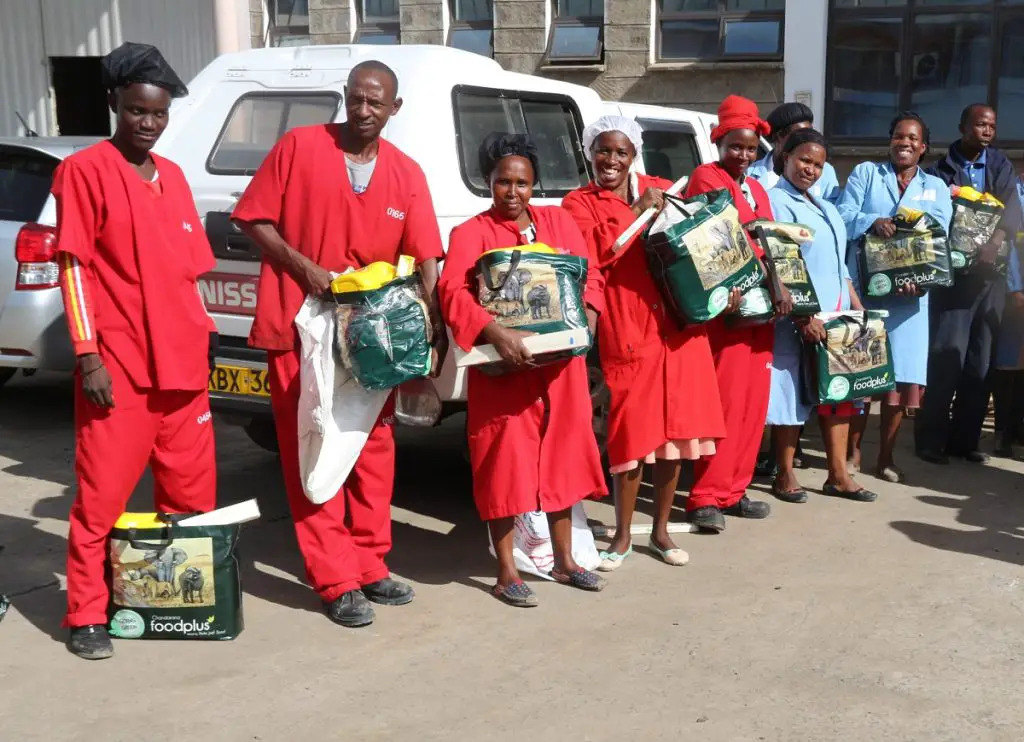Desperate times call for desperate measures and with Kenya’s flower sector hit hard by covid-19, it is time that the country sought ways to maintain relationships with its key markets.
The first gesture by the Kenya flower sector has been to send some 300 bouquets to the United Kingdom in what was called “solidarity with covid-19 frontline combatants” in a campaign dubbed Flowers For Hope.
Kenya’s national carrier Kenya Airways (KQ) flew the consignment on Friday night last week in a move set to keep the flower market open for business when the coronavirus pandemic passes.
The flowers to be distributed to those in the frontline of combating the pandemic including doctors, nurses and recovering patients and care homes were in sleeves inscribed with President Uhuru Kenyatta’s goodwill message.
Kenyatta’s message read, “There have been a few moments in history when the world has faced a crisis as far-reaching and consequential as this. It is exactly at moments such as this that we must display our humanity, perseverance and hope. Whatever the adversity, no matter the foe, we shall triumph together. We stand united. Tuko Pamoja. From Kenya with love – H E Uhuru Kenyatta.”
Death of the dollar, what’s in it for Africa
KEPSA Chief Executive Officer Carol Karuga said, “Our member, the Kenya Flower Council, has done this to show empathy and this sends a strong message of partnership at a time when many countries are facing difficulty. It is part of our campaign dubbed ‘Flowers of Hope’ informed by the realities brought forth by how the COVID-19 pandemic is impacting world economies.”
The campaign has seen thousands of roses distributed to doctors, nurses and the sick at Kenyatta National Hospital (KNH), Mbagathi, Pumwani Maternity, Mama Lucy Hospital and the Spinal Injury Hospital.
Flowers For Hope campaign is informed by the need to celebrate and support those actively involved and affected by the contagion while helping in saving thousands of jobs in Kenya’s flower farms that are on the line as sales of cut flowers in overseas markets plummet to record lows.
The Kenya Flower Council says the dip in sales is now below 35 per cent of what would currently be expected.
Despite the sector being among the hardest hit in Kenya, some flower farms have retained their workers led by Elgon Kenya which has retained its 600 workers. The company has also guaranteed them their income and it is providing food rations to staff to encourage them to stay positive amidst a worrisome situation.
“The rations have been extended to some security officers and Managing Director Bimal Kantaria is calling on all Kenyans with a little to offer to join the generosity train in support to our first-line covid-19 fighters who have a duty and a calling to keep us safe,” says Nelson Maina, a manager at Elgon Kenya.
In continental Europe and the UK which is Kenya’s biggest flower market, local sales for florists have declined to almost zero as customer spending shifts to essential purchases.
This has led to other companies sending home more than 1,000 seasonal workers from various flower farms in Naivasha. Depending on how long the problem persists, there is a likelihood that most contracts may be terminated altogether.
Africa should look inwards to grow, achieve economic autonomy
Several flower farms have suspended shipping flowers with the Dutch auction recording a 50 per cent drop in exports.
In addition to the covid-19 coronavirus pandemic effects, the sector faces another challenge in the False Codling Moth (FCM). The moth is a pest which is present on more than 70 host plants including roses, citrus, peppers (Capsicum spp.) and maize among others which makes it a challenge to control it.
FCM damages the rose crop and is categorized as a quarantine pest by the European Union (EU).
The Kenya Plant Health Inspectorate Services (KEPHIS), the Kenya Flower Council and the Netherlands government, therefore, joined efforts to stop this pest.
Already several rose growers have incurred financial losses due to flower interceptions in the EU which have led to increased checks. These checks affect all Kenyan rose exporters and the sector is adopting an integrated approach to deal with the FCM challenge.
Last year in July, Kenya signed a framework for agriculture cooperation with the Netherlands. The collaboration allows the exchange of knowledge and experiences from both Kenya and the Netherlands which can offer insights on flower production.
As the flower sector in Kenya seeks restoration, a multipronged approach to deal with the challenges facing the sector will come in handy to ensure that it lands on its feet post-coronavirus.
